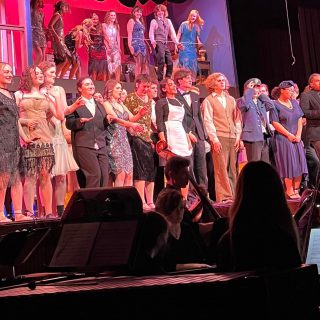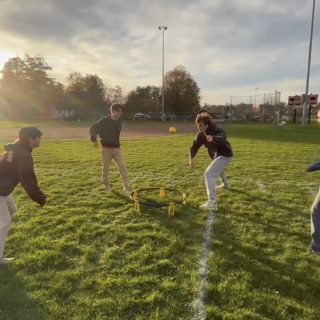‘Innocent Voices’ explores a brutal chapter of El Salvador’s history

Luis Mandoki’s 2004 film “Innocent Voices” tells the story of one out of millions of individuals living in one of the most cruel moments in El Salvador’s history. This movie illustrates how the ugliness of war intercepted the beauty of El Salvador. This film is one of my favorite films, and it’s one of the most popular in the Latin community.
Mandoki starts the movie off by showing four kids with their hands behind their heads, being led by soldiers. Their faces show how these children have lost their innocence and their spirit of hope, replaced by fear and a doubt they can survive.
One of the kids, main character Chava (played by Carlos Padilla) says desperately, “I am very thirsty, I have rocks in my shoes, and I am tired. Why do they want to kill us if we didn’t do anything?”
“Innocent Voices” takes place in the 1980s in a small barrio in El Salvador. The cause for this war arose from an agrarian conflict between the Salvadoran government and the Farabundo Marti National Liberation Front (FMLN). In essence, the government was trying to steal and exploit people’s land, and in response, marginalized people’s military tactic was to forcibly recruit kids, specifically boys, into the war to keep their land.
Once these children turned 12 years old, they were eligible to be recruited without the consent of their parents. Despite the violence many of these children witnessed, they pushed to live a normal childhood despite the violence they were witnessing in front of their faces.
In the story, Chava is an 11-year-old boy living amid the war. He has one more year of “innocence” before he is forcibly recruited. His father abandoned the family during the war to go live in the United States, leaving Chava’s mother a single mother.
This forces Chava to become “the man of the house.” The movie does a great job showing how the children matured at a young age. In early scenes, they explore childhood fantasies of nature while later, they must survive in the world outside their fantasies.
Many of these children witnessed strong scenes that no child should see, such as seeing their own friends being murdered in front of them by soldiers. Such scenes, played well by Padilla and other actors in the movie, demonstrate how there was no mercy during those times. Their acting depicts the true emotions that many of these individuals experienced during the war.
For instance, there is a scene where Chava and his friends are told that recruitment in their neighborhood is happening the next day and to hide. Chava and his friends then notify everyone through a piece of paper saying, “Tomorrow there’s recruitment.”
Every parent on that day, due to the fear of having their kids forcibly stripped away from them, hides all their kids on top of the roofs of their homes; the children lay silently until the soldiers leave.
Living during this war forced many individuals to be displaced from their homes. This was a driving factor as to why many Salvadoreans immigrated to the United States or other areas for a chance to live life without overwhelming fear.
As the movie ended, I felt like I gained so much knowledge from this movie. It’s a touching story that shows an eruption of violence that caused a rising number of deaths. Seeing this movie, I felt an overwhelming feeling of sadness. It’s an important part of history, but painful to watch, because you truly feel like you are there.














